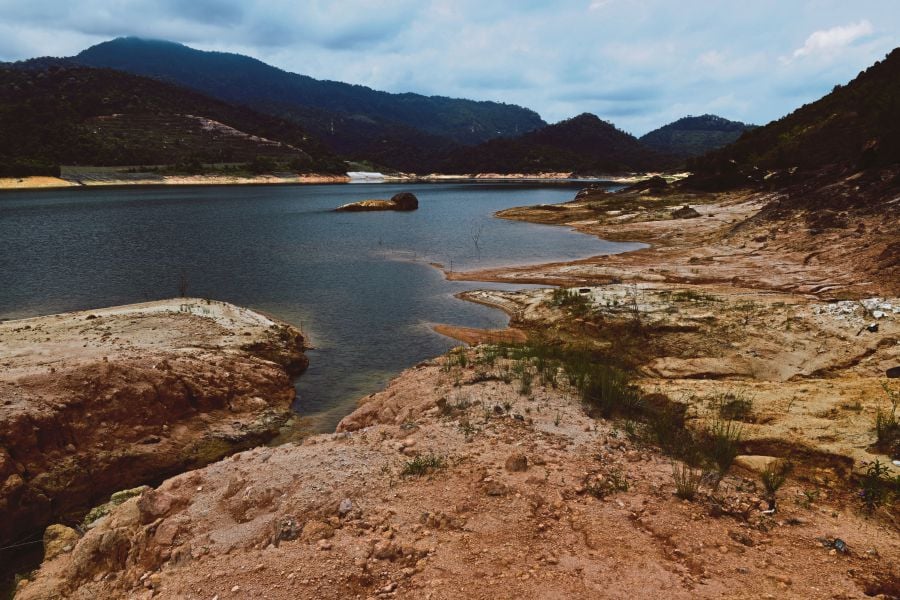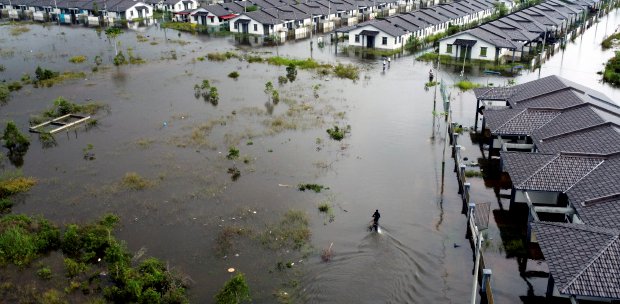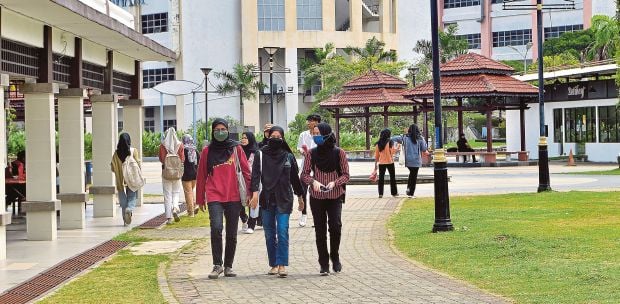NEWS, they say, comes in twos. There is good news and there is bad news. But when it comes to water shortages in Malaysia, it is bad news and worse news.
There are already water shortages in places, though they are treated by the authorities as seasonal. Recent examples are the water woes in pockets of Penang and Langkawi. Signs of danger to come for the whole peninsula? Malaysia's main water regulator, the National Water Services Commission (Span), sure thinks so.
And the nature of the danger? A dry peninsula with no water to consume on a 24/7 basis. This must necessarily scare the nation into action. But first, why is such a danger coming our way? In an interview published on Friday in the New Straits Times, Span chairman Charles Santiago named a combo of reasons for this: climate change, wastage and ageing infrastructure.
According to Span's calculation, the danger is just five years away. Is it inevitable? Happily not. But everything that must happen must be made to happen now.
Start with climate change. Here, there are some things within our control and some not. But even with things within our control, we are not acting with the urgency they require. From north to south of the peninsula, hills are being depleted of their trees. And with them, wildlife.
It is not clear if all of them are legal. Perak and Selangor are two examples. And very visible, too, from the North-South Expressway. It is no good to say we have 55 per cent forest cover when our hills are constantly made bare. It is no use saying it is only here and there. Here and there eventually becomes everywhere.
Disturbing nature's balance has serious repercussions. One such is depleting rivers. Depleted rivers mean dry taps. Commerce will be that much disturbed, not to mention lives. For the very commerce our land is being cleared will become meaningless if there is no water. True, some industries are existentially reliant on water, and others not-so-heavy users. But all need water. And so do people.
Wastage, the second reason, is all within our control. Wastage is of three types: overconsumption, theft and ageing infrastructure. More of the second and third later. Consumers can conserve, but they don't.
Here are some numbers crunched by Span. Malaysians consume about 245 litres a day per person when the recommended volume by the World Health Organisation is only 160 litres. This must alarm consumers into immediate action. If we continue to waste water at the rate we are doing now, then we can't blame our water services operators for imposing higher tariffs beyond 160 litres per day per person.
Sometimes habits must be forced upon us. Finally, loss through theft and leaking pipes, what Span calls non-water revenue (NWR). In 2022, water services operators lost RM2 billion in potential revenue. Between 2018 and 2022, billions more were similarly lost. Four states stand out when it comes to NWR.
Perlis, Kedah, Kelantan and Sabah had NWR of more than 50 per cent, way higher than the national average of 37.2 per cent. Plugging these losses takes huge investments and time. The authorities will do well to start now to stop the taps from running dry in five years.





